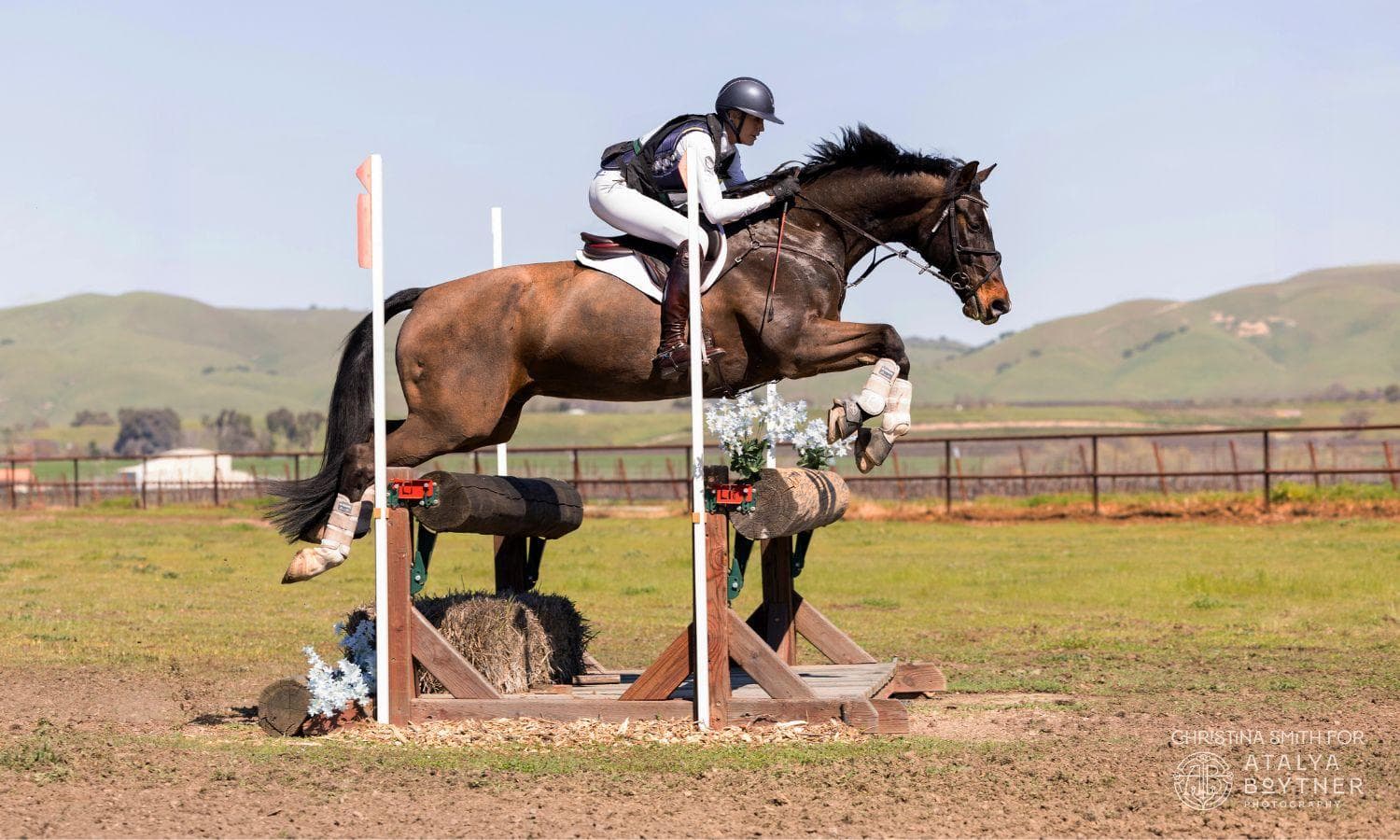The Importance of Balance and Strength with Sharon White
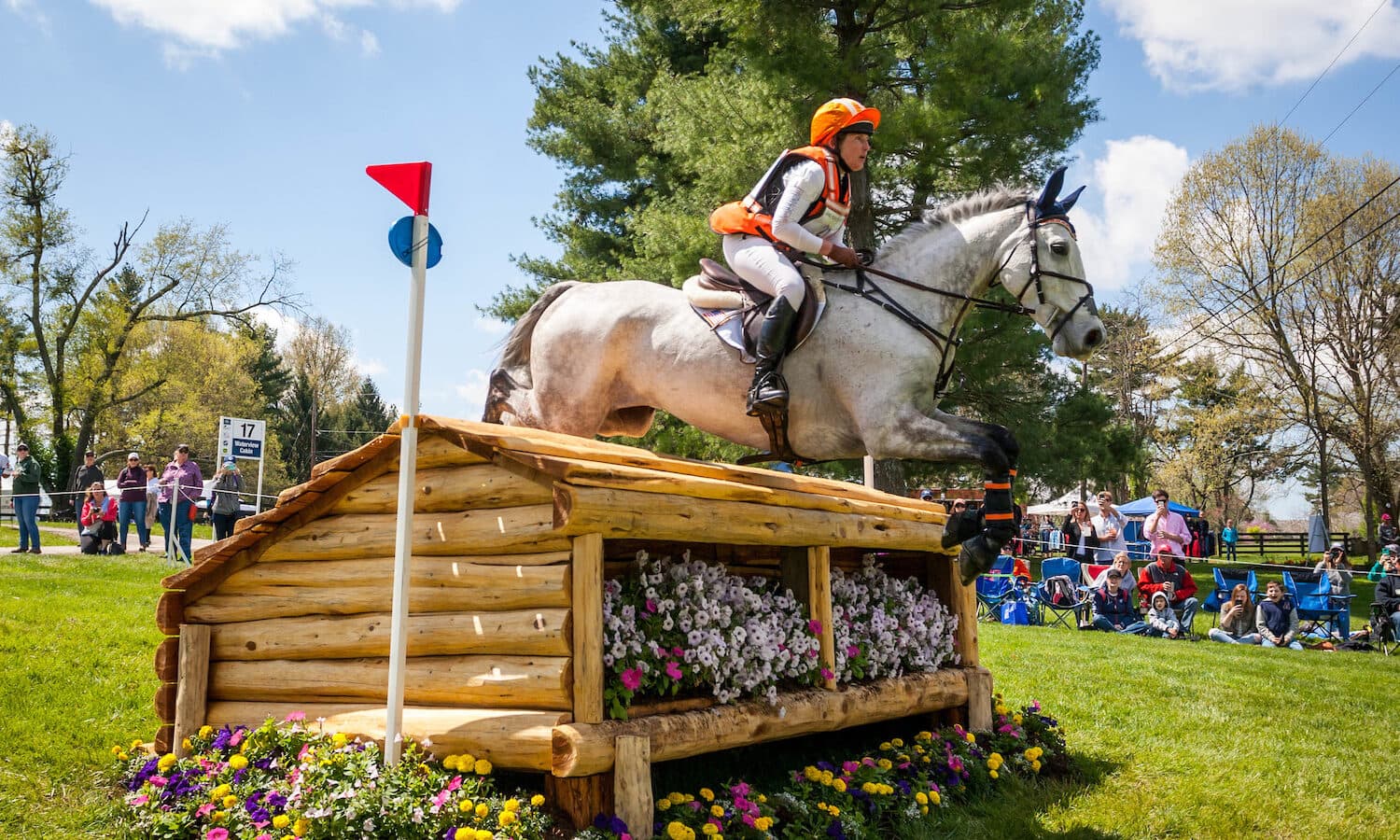
As riders, balance and core strength are key components to success in the saddle, and there are many small things that riders can do outside the saddle to improve those factors. Sharon White, international five-star event rider, uses a combination of Pilates and stretching to supplement her work in the saddle, but stresses that even just 10 minutes of focused exercise a day can make a difference in your riding.
“Feeling very secure in the saddle brings confidence,” stated White. “I think it’s really important for everyone to understand that even if it’s just 10 minutes a day to do some stretching and some planking, it’ll help. Start small. Any little bit actually really helps. You’ll feel a difference and hopefully be inspired to do more.”
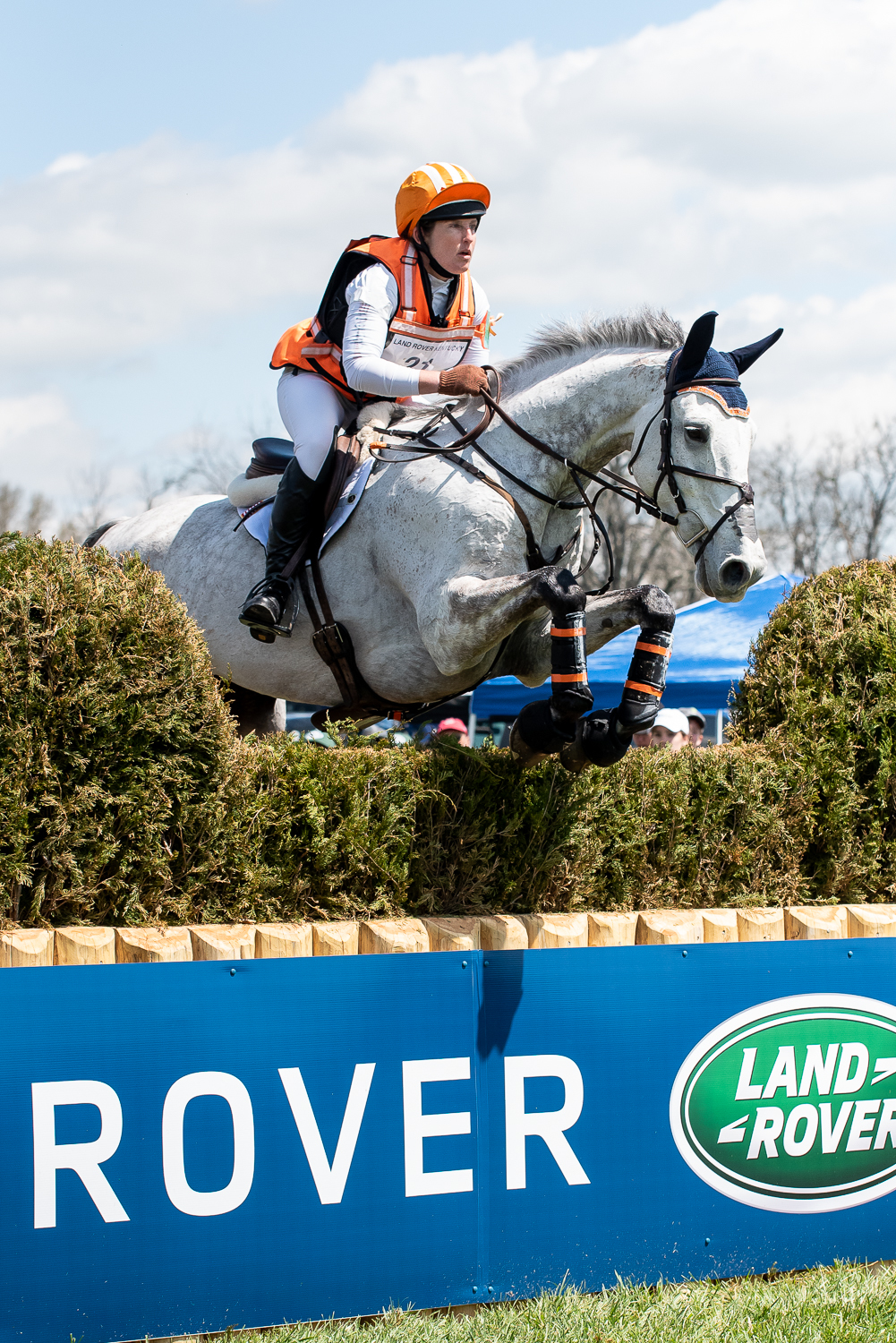
For White, Pilates has been a game changer for her performance in the saddle because of its focus on balance and core strength. “I think Pilates is the single best thing anyone who rides could possibly do,” she said. “I’m such a believer in it for core strength, for balance, for body awareness, for flexibility, for symmetry. It is so important for your horse that you sit on them correctly and straight and are aware of that, and core strength is the single best thing you can do for riding.”
White supplements her Pilates and stretching work with the high-intensity interval training workouts from Orangetheory, a fitness class that incorporates treadmills, rowing machines, and weightlifting. “It’s super because you can do it at 5:45 in the morning, so there’s no way it conflicts with anything – that’s when I do it,” she explained. “And I love the competitive nature of it with yourself using the heart rate monitors. I find it super useful.”
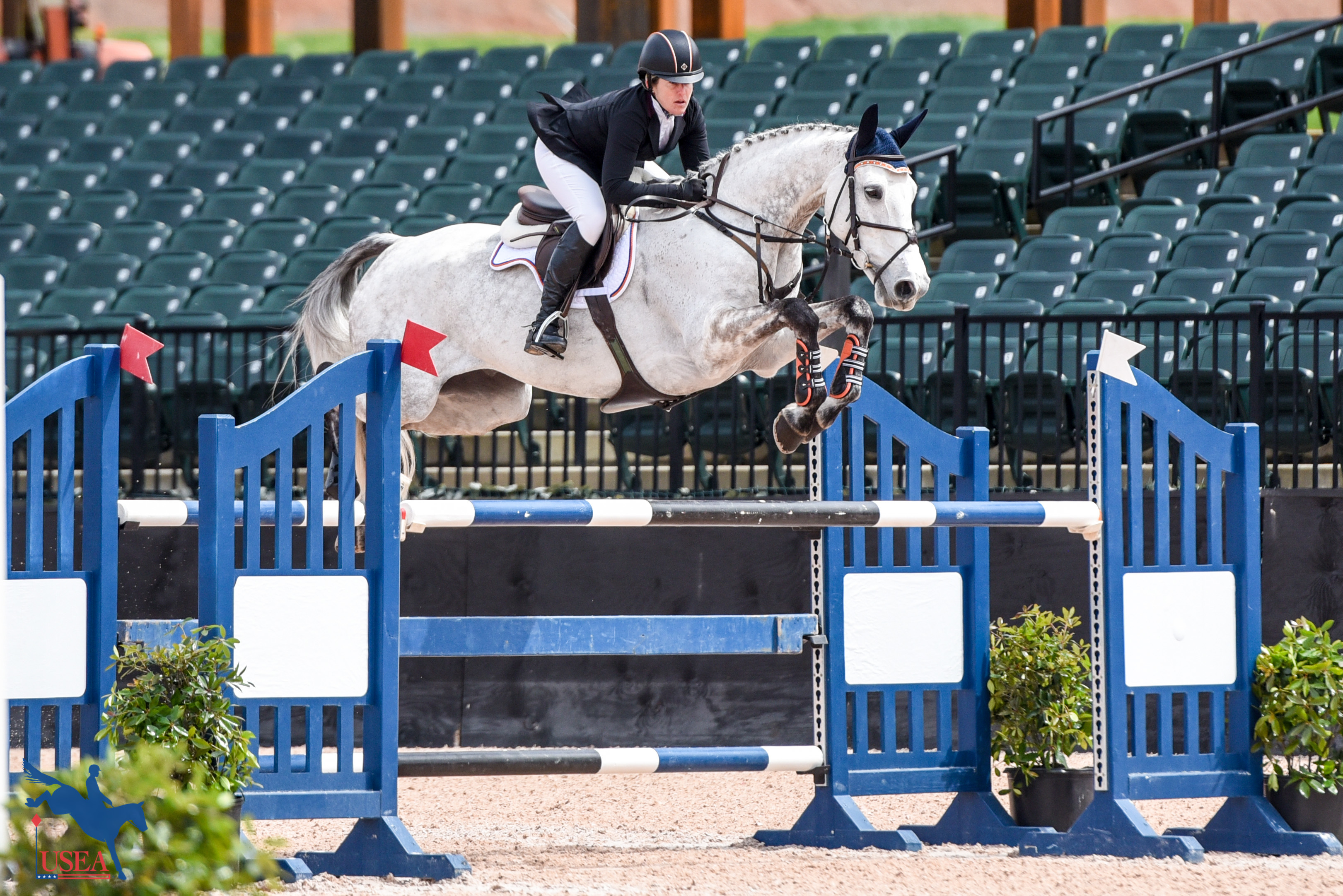
No stranger to serious injury, White has recovered from two pelvis breaks, a sacrum break, a hip break, three collarbone breaks, a shoulder break – and that just scratches the surface. “I have come back from injury many, many times, and that is what gives you such an awareness of what your body is capable of, because it’s really quite amazing what the body can recover from and be fine from and even be better from.”
“I really think that awareness really transfers over to an awareness of your horse’s strength as well,” White continued. “You’re going to get hurt, [but] the body can recover and the fitter you are the less chance of injury you’re going to have in the first place. If you are strong and fit, there’s less chance that something is going to happen when you fall off. Muscle protects your body.”
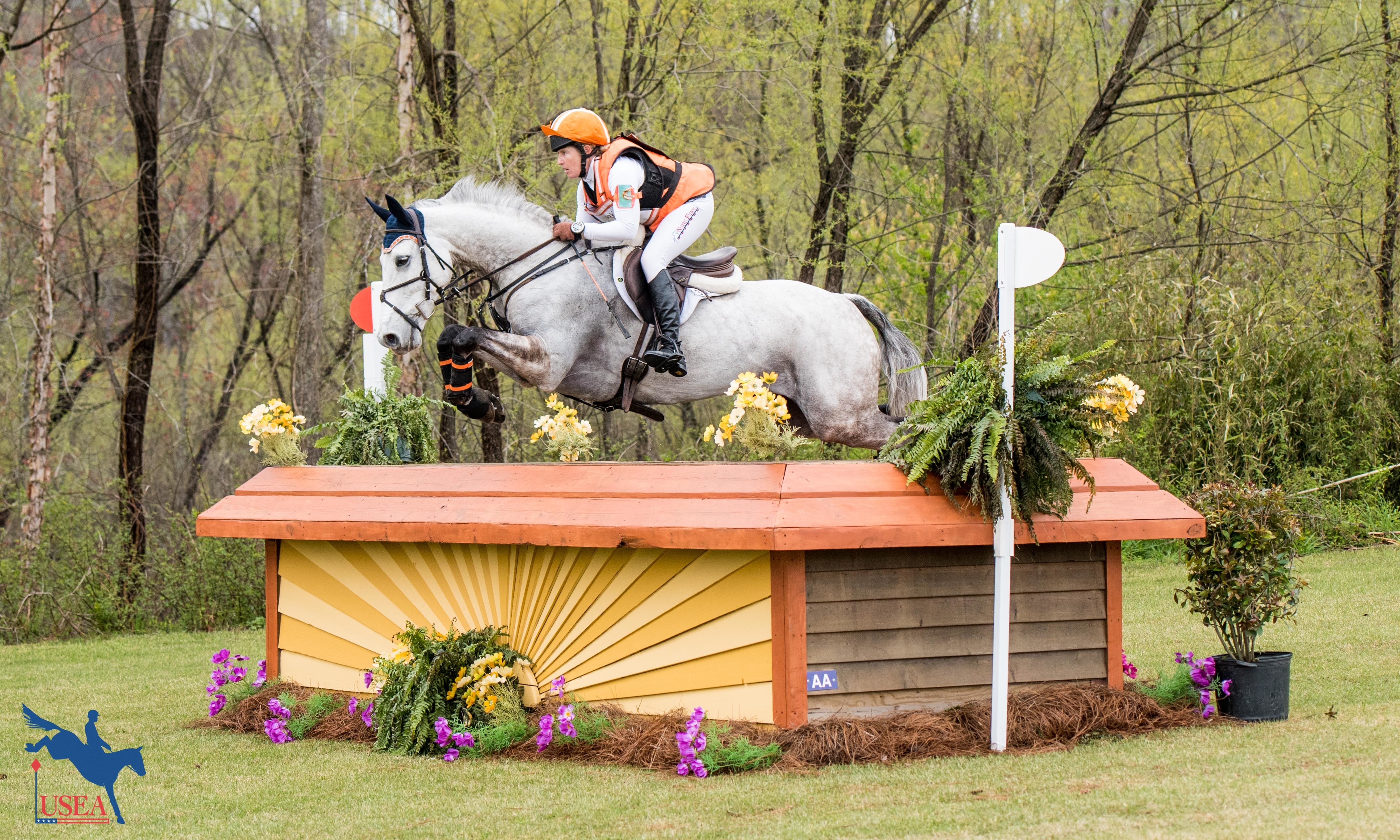
White stressed that stretching before you ride can help you be more effective once you’re in the saddle. “Stretching is super useful before you get on a horse. Stretch out your hip flexors, stretch your quads, stretch your hamstrings, so you don’t sit on top of your horse, you become part of your horse.”
Above all, White said to pick something that you like to do and go do it, because any fitness work outside the saddle will help your riding in the end. “Whatever you are interested in and you want to do, do that – it’s going to help. Don’t do something because I say to do it – not everyone wants to wake up and go hang out with a bunch of people at 4:45 in the morning. Whatever you choose to do should be something you want to do. Go for a walk, go for a bike ride, do yoga, do anything that you want to do so that you keep doing it. Any physical exercise will help your riding, but it has to be something that calls to you. Anything that you enjoy doing – go do it!”
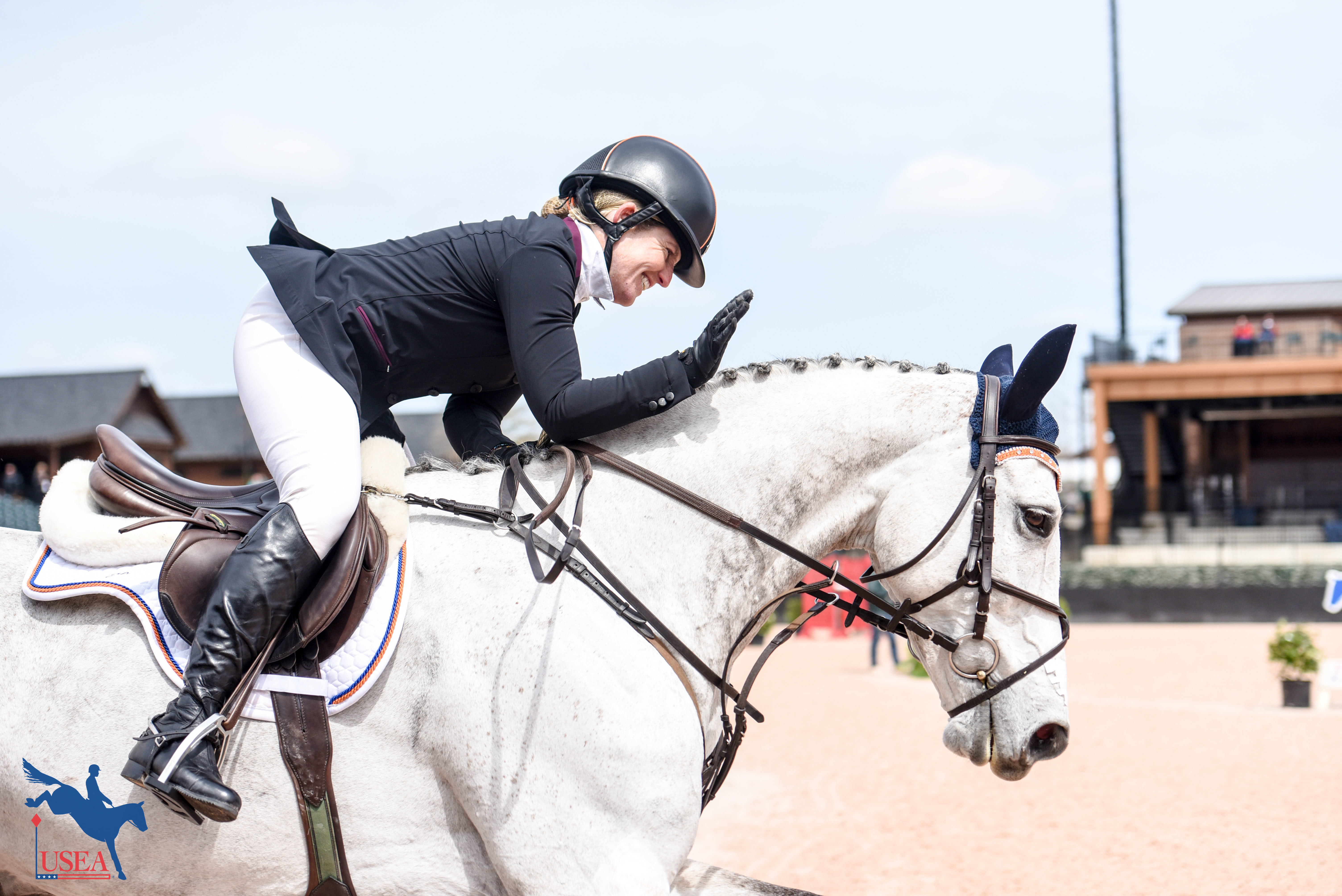
“It’s a journey,” White concluded. “Your physical fitness, just like your riding – there’s not a destination. It’s a journey for the rest of your life for what makes you feel good and what will keep you healthy. Your body and your health is the one thing you have.”
If you have a unique fitness routine, the USEA wants to hear from you! Email [email protected] with your fitness routines, stories, or advice. To read other articles about rider fitness, click here.


